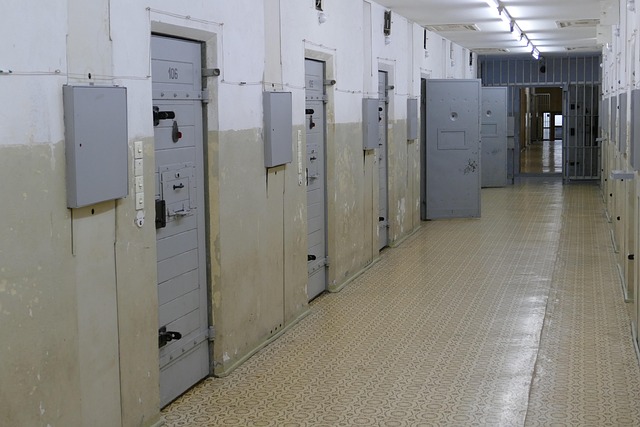Traditional DUI sentencing is being supplemented and potentially improved upon by Tech Solutions for Impaired Driving, which focus on prevention, intervention, and rehabilitation rather than just punishment. These solutions include apps, monitoring systems, virtual reality interventions, and community service alternatives. By leveraging technology like wearable devices and AI, these innovative approaches aim to reduce recidivism, promote responsible behavior, and more effectively target high-risk individuals, ultimately revolutionizing drunk driving prevention.
In the pursuit of safer roads, the traditional sentencing approach for DUI (drunk driving) is facing scrutiny. This article explores alternative sentencing options that are transforming the way we combat impaired driving. From innovative programs to technology’s role, we delve into the benefits and drawbacks of various alternatives. Furthermore, it examines future trends, highlighting tech solutions for impaired driving that promise more effective and nuanced approaches, aiming to reduce recidivism and keep communities safe.
- Understanding Traditional DUI Sentencing and Its Shortcomings
- The Rise of Alternative Sentencing Programs: A New Approach
- Technology's Role in Transforming DUI Punishment
- Pros and Cons of Common Alternative Sentencing Options
- Future Trends: Innovative Tech Solutions for Impaired Driving
Understanding Traditional DUI Sentencing and Its Shortcomings

Traditional DUI sentencing often involves harsh penalties, including jail time, fines, and license suspension. While these measures aim to deter impaired driving, they can have adverse effects on individuals’ lives, especially those with limited resources or prior criminal records. The current system may not effectively address the underlying issues that contribute to drunk or drugged driving, such as addiction, mental health problems, or lack of access to transportation alternatives.
Tech solutions for impaired driving offer a promising alternative by leveraging innovative tools and platforms. These solutions range from mobile apps that promote responsible drinking and provide safe ride options to advanced driver monitoring systems that use GPS and sensor technology to track behavior patterns. By implementing these tech-driven approaches, communities can move beyond punitive measures alone, focusing on prevention, intervention, and supporting individuals in making positive changes.
The Rise of Alternative Sentencing Programs: A New Approach

In recent years, the traditional approach to DUI (impaired driving) cases has been challenged by a rising trend: alternative sentencing programs. This shift is driven by a growing recognition that standard penalties may not effectively deter impaired driving while also causing significant harm to individuals and communities. As such, innovative tech solutions for impaired driving have emerged, offering new avenues for justice and rehabilitation.
These alternative sentencing options leverage technology to provide more personalized and flexible approaches. For instance, electronic monitoring devices can ensure compliance with conditions like home detention or community service, while remote alcohol testing uses advanced sensors to detect consumption. Additionally, virtual reality interventions offer immersive experiences that help individuals understand the impact of impaired driving, serving as a powerful deterrent. Such tech-driven solutions not only supplement traditional sentencing but also foster a more comprehensive understanding and treatment of drunk driving behavior.
Technology's Role in Transforming DUI Punishment

In the realm of DUI (Drunk or Impaired Driving) punishment, technology is emerging as a game-changer, offering innovative and effective alternatives to traditional sentencing. Tech solutions for impaired driving are transforming the way justice is served by providing more personalized, efficient, and often less punitive approaches. For instance, advanced remote monitoring devices can be fitted to offenders’ vehicles, tracking their location and behavior in real time, thereby ensuring compliance with specific conditions set by the court.
Moreover, digital interventions such as mobile apps and online programs are being utilized to address the root causes of impaired driving. These tech-driven tools offer educational resources, counseling sessions, and support groups, enabling individuals to make better choices and change their behavior. By leveraging technology in this manner, the focus shifts from solely punitive measures to a more holistic approach that promotes rehabilitation and reduces recidivism rates.
Pros and Cons of Common Alternative Sentencing Options

Alternative sentencing options for DUI cases are gaining traction, offering a more nuanced approach to justice and public safety. One prominent option is community service, where offenders contribute their time to local organizations or projects. This method has several advantages; it allows individuals to give back to their communities, fosters a sense of accountability, and can provide valuable skills training or education. Additionally, community service can be tailored to address specific needs, such as youth outreach or environmental conservation initiatives.
However, challenges exist with this approach. Ensuring proper supervision and tracking of offenders across various community-based programs can be complex. Moreover, the effectiveness in deterring future impaired driving may vary; some individuals might not fully grasp the seriousness of their actions or find community service punitively inadequate compared to traditional penalties. Tech solutions for impaired driving, like innovative monitoring devices or digital intervention programs, could complement these alternative options, offering a more comprehensive strategy to address DUI offenses and promote responsible behavior.
Future Trends: Innovative Tech Solutions for Impaired Driving

The future of drunk driving prevention looks set to be transformed by innovative tech solutions for impaired driving. As technology advances, there is a growing trend towards more sophisticated and personalized approaches to deterring and addressing drunk or impaired operation of vehicles. One prominent area of development is the use of wearable devices that can detect alcohol consumption and alert authorities or designated drivers in real-time. These devices offer a promising way to enforce compliance with DUI laws and ensure greater public safety.
Additionally, artificial intelligence (AI) and machine learning algorithms are being harnessed to predict and identify high-risk individuals more accurately. By analyzing vast datasets, these technologies can pinpoint patterns and behaviors associated with impaired driving, enabling proactive interventions and targeted prevention programs. This data-driven approach has the potential to revolutionize how we combat drunk driving, making it a more efficient and effective process.
In light of the above, it’s clear that traditional DUI sentencing methods are undergoing a transformative shift. The rise of alternative sentencing programs, coupled with technological advancements, presents promising avenues for a more effective and humane approach to addressing impaired driving. As we move forward, integrating innovative tech solutions for impaired driving—such as remote monitoring, educational programs, and personalized interventions—could significantly reduce recidivism rates and promote safer communities. By embracing these changes, we not only reform our justice system but also foster a culture of responsibility and accountability among drivers.






